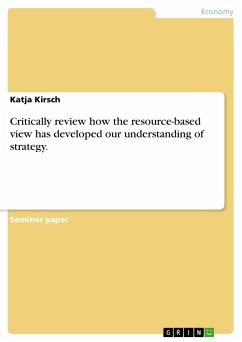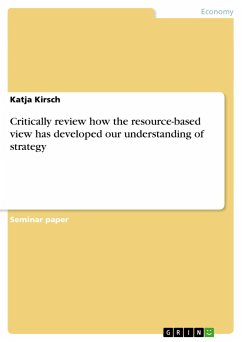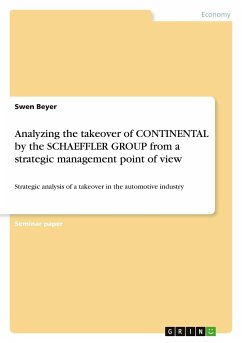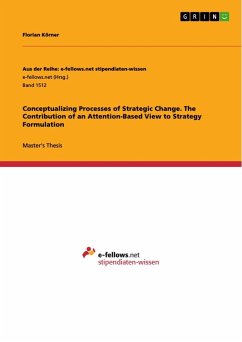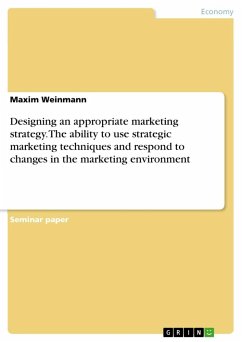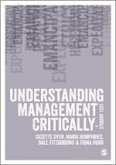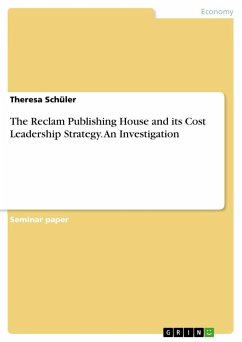Seminar paper from the year 2004 in the subject Business economics - Business Management, Corporate Governance, grade: 73%, University of the West of England, Bristol (Bristol Business School), course: Strategic Management, language: English, abstract: There is no common definition of strategy or the way how to implement it. However, it is common understanding that the purpose of each business is to maximise profit and that this is reached through a competitive advantage a firm might have over its rivals. Therefore, strategy should describe a mean to manage and direct a business in its environment towards a favourable market position which offers a competitive advantage (e.g. Rumelt, 1996; Porter, 1996).In this sense, "a firm is said to have a sustained competitive advantage when it is implementing a value creating strategy not simultaneously being implemented by any current or potential competitors and when these other firms are unable to duplicate the benefits of this strategy." (Barney, 1991: 102) However, there are different approaches regarding what strategies need to be based upon to achieve that competitive advantage, i.e. what are the sources for a favourable market position and a competitive advantage.This paper then goes on explaining the resource-based view before listing its criticisms and concluding with an outlook into the future of strategic planning.
Hinweis: Dieser Artikel kann nur an eine deutsche Lieferadresse ausgeliefert werden.
Hinweis: Dieser Artikel kann nur an eine deutsche Lieferadresse ausgeliefert werden.

